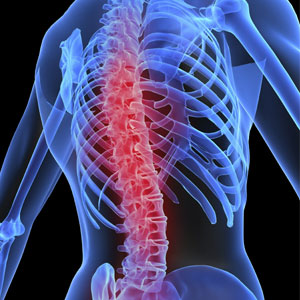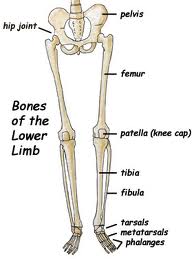 The FDA recently issued the following communication report: Patients and healthcare professionals may have questions about oral bisphosphonate medications and atypical subtrochanteric femur fractures – fractures in the bone just below the hip joint. Oral bisphosphonates are commonly prescribed to prevent or treat osteoporosis in postmenopausal women. Common brand names of medications in this class include Fosamax, Actonel, Boniva, and Reclast. Recent news reports have raised the question about whether there is an increased risk of this type of fracture in patients with osteoporosis using these medications. At this point, the data that FDA has reviewed have not shown a clear connection between bisphosphonate use and a risk of atypical subtrochanteric femur fractures. FDA is working closely with outside experts, including members of the recently convened American Society of Bone and Mineral Research Subtrochanteric Femoral Fracture Task Force, to gather additional information that may provide more insight into this issue.
The FDA recently issued the following communication report: Patients and healthcare professionals may have questions about oral bisphosphonate medications and atypical subtrochanteric femur fractures – fractures in the bone just below the hip joint. Oral bisphosphonates are commonly prescribed to prevent or treat osteoporosis in postmenopausal women. Common brand names of medications in this class include Fosamax, Actonel, Boniva, and Reclast. Recent news reports have raised the question about whether there is an increased risk of this type of fracture in patients with osteoporosis using these medications. At this point, the data that FDA has reviewed have not shown a clear connection between bisphosphonate use and a risk of atypical subtrochanteric femur fractures. FDA is working closely with outside experts, including members of the recently convened American Society of Bone and Mineral Research Subtrochanteric Femoral Fracture Task Force, to gather additional information that may provide more insight into this issue.
Based on published case reports of atypical subtrochanteric femur fractures occurring in women with osteoporosis using bisphosphonates, FDA, in June 2008, requested information from all bisphosphonate drug manufacturers regarding this potential safety signal. All available case reports and clinical trial data were requested. FDA's review of these data did not show an increase in this risk in women using these medications.
In addition, FDA reviewed a December 2008 article in the Journal of Bone and Mineral Research by Abrahamsen et al1, that analyzed data from two large observational studies in patients with osteoporosis. The authors concluded that atypical subtrochanteric femur fractures had many similar features in common with classical osteoporotic hip fractures, including patient age, gender, and trauma mechanism. The data showed that patients taking bisphosphonates and those not taking bisphosphonates had similar numbers of atypical subtrochanteric femur fractures relative to classical osteoporotic hip fractures.
The FDA will continue to review new information as it becomes available and will update the public once the agency's review is complete.
Healthcare professionals should continue to follow the recommendations in the drug label when prescribing oral bisphosphonates. Patients should not stop taking their medication unless told to do so by their healthcare professional. Patients should talk to their healthcare professional about any concerns they have with these medications.
Additional Information for Patients
If you currently take an oral bisphosphonate you should:
* Not stop taking your medication unless told to do so by your healthcare professional.
* Talk to your healthcare professional if you develop new hip or thigh pain or have any concerns with your medications.
* Report any side effects with your bisphosphonate medication to FDA's MedWatch program.
Additional Information for Healthcare Professionals
FDA recommends that healthcare professionals should:
* Be aware of the possible risk of atypical subtrochanteric femur fractures in patients taking oral bisphosphonates.
* Continue to follow the recommendations in the drug label when prescribing oral bisphosphonates.
* Discuss with patients the known benefits and potential risks with using oral bisphosphonates.
* Report any adverse events with the use of oral bisphosphonates to FDA's MedWatch program.
References:
1. Abrahamsen B., Eiken P., Eastell R. Subtrochanteric and Diaphyseal Femur Fractures in Patients Treated With Alendronate: A Register-Based National Cohort Study. J Bone Miner Res. 2009 Jun;24(6):1095-102.
 Are you or a family member at risk for osteoporosis--a serious, potentially debilitating condition more prevalent in women? Over the past decade a number of treatments have become available including bisphosphonates. An excellent one-page summary of benefits and risks is now available from the Hormone Foundation and should be read by all who are considering treatment.
Are you or a family member at risk for osteoporosis--a serious, potentially debilitating condition more prevalent in women? Over the past decade a number of treatments have become available including bisphosphonates. An excellent one-page summary of benefits and risks is now available from the Hormone Foundation and should be read by all who are considering treatment.
 On March 11, 2010, this site posted a
On March 11, 2010, this site posted a  The FDA recently issued the following communication report: Patients and healthcare professionals may have questions about oral bisphosphonate medications and atypical subtrochanteric femur fractures – fractures in the bone just below the hip joint. Oral bisphosphonates are commonly prescribed to prevent or treat osteoporosis in postmenopausal women. Common brand names of medications in this class include Fosamax, Actonel, Boniva, and Reclast. Recent news reports have raised the question about whether there is an increased risk of this type of fracture in patients with osteoporosis using these medications. At this point, the data that FDA has reviewed have not shown a clear connection between bisphosphonate use and a risk of atypical subtrochanteric femur fractures. FDA is working closely with outside experts, including members of the recently convened American Society of Bone and Mineral Research Subtrochanteric Femoral Fracture Task Force, to gather additional information that may provide more insight into this issue.
The FDA recently issued the following communication report: Patients and healthcare professionals may have questions about oral bisphosphonate medications and atypical subtrochanteric femur fractures – fractures in the bone just below the hip joint. Oral bisphosphonates are commonly prescribed to prevent or treat osteoporosis in postmenopausal women. Common brand names of medications in this class include Fosamax, Actonel, Boniva, and Reclast. Recent news reports have raised the question about whether there is an increased risk of this type of fracture in patients with osteoporosis using these medications. At this point, the data that FDA has reviewed have not shown a clear connection between bisphosphonate use and a risk of atypical subtrochanteric femur fractures. FDA is working closely with outside experts, including members of the recently convened American Society of Bone and Mineral Research Subtrochanteric Femoral Fracture Task Force, to gather additional information that may provide more insight into this issue.